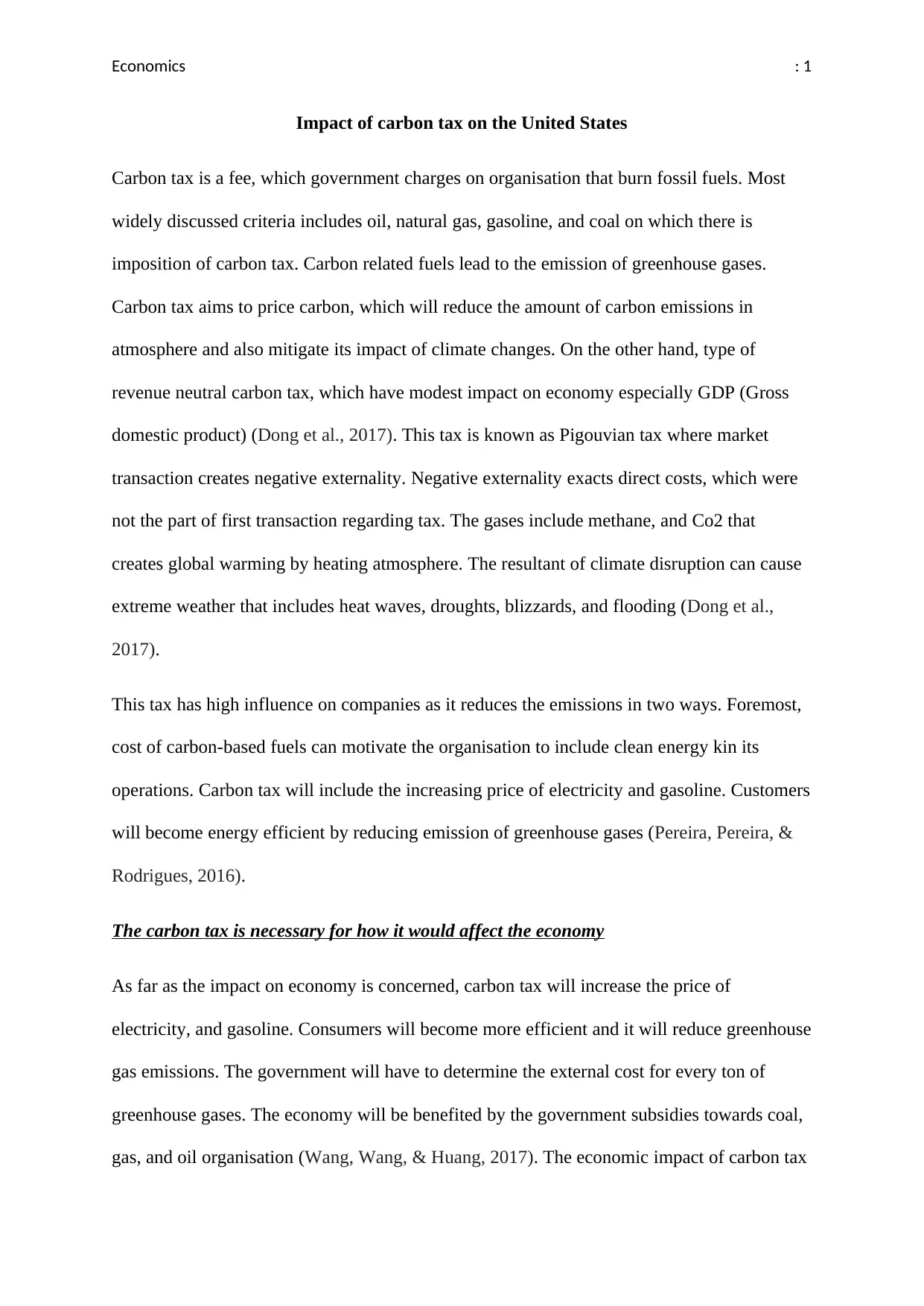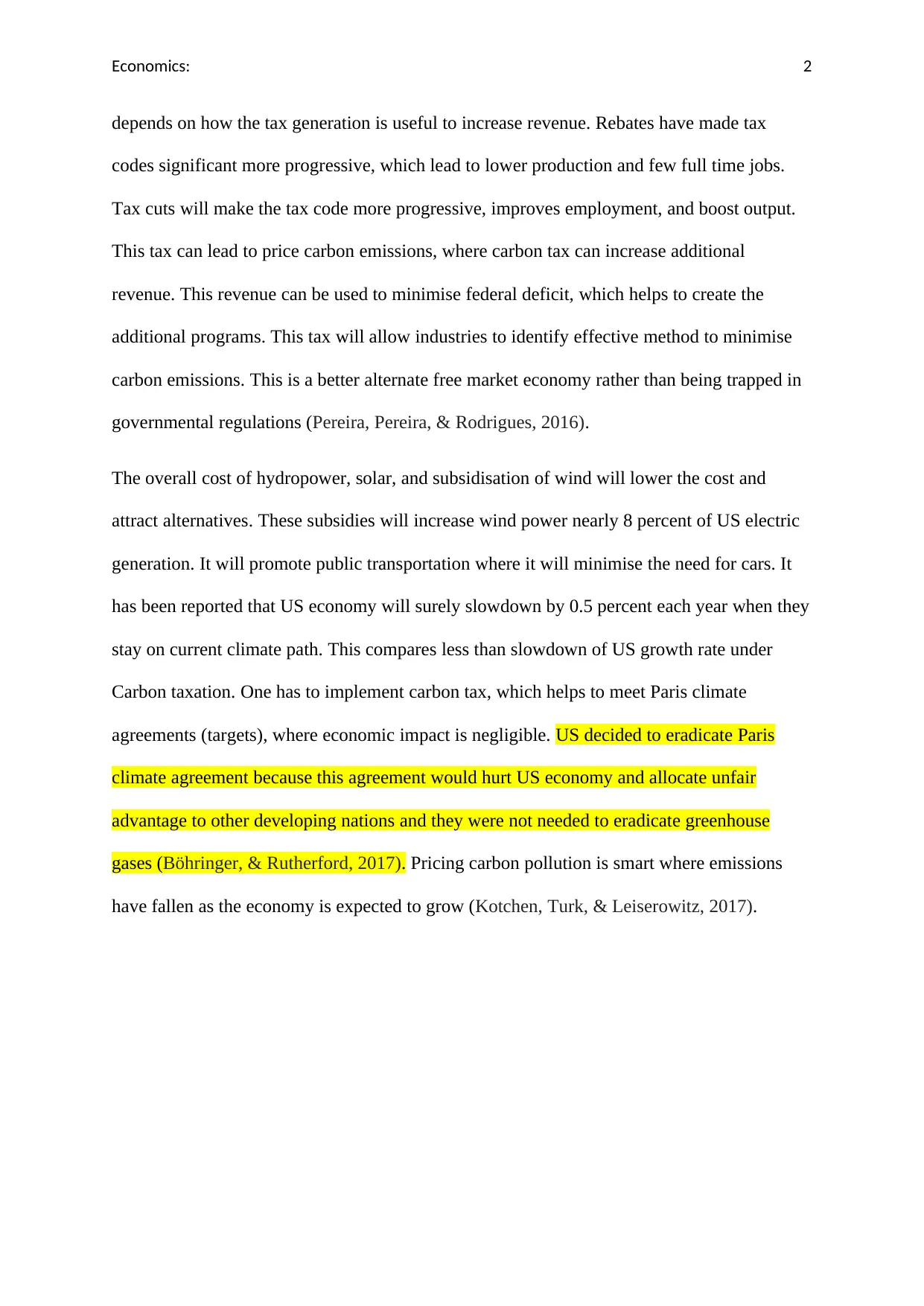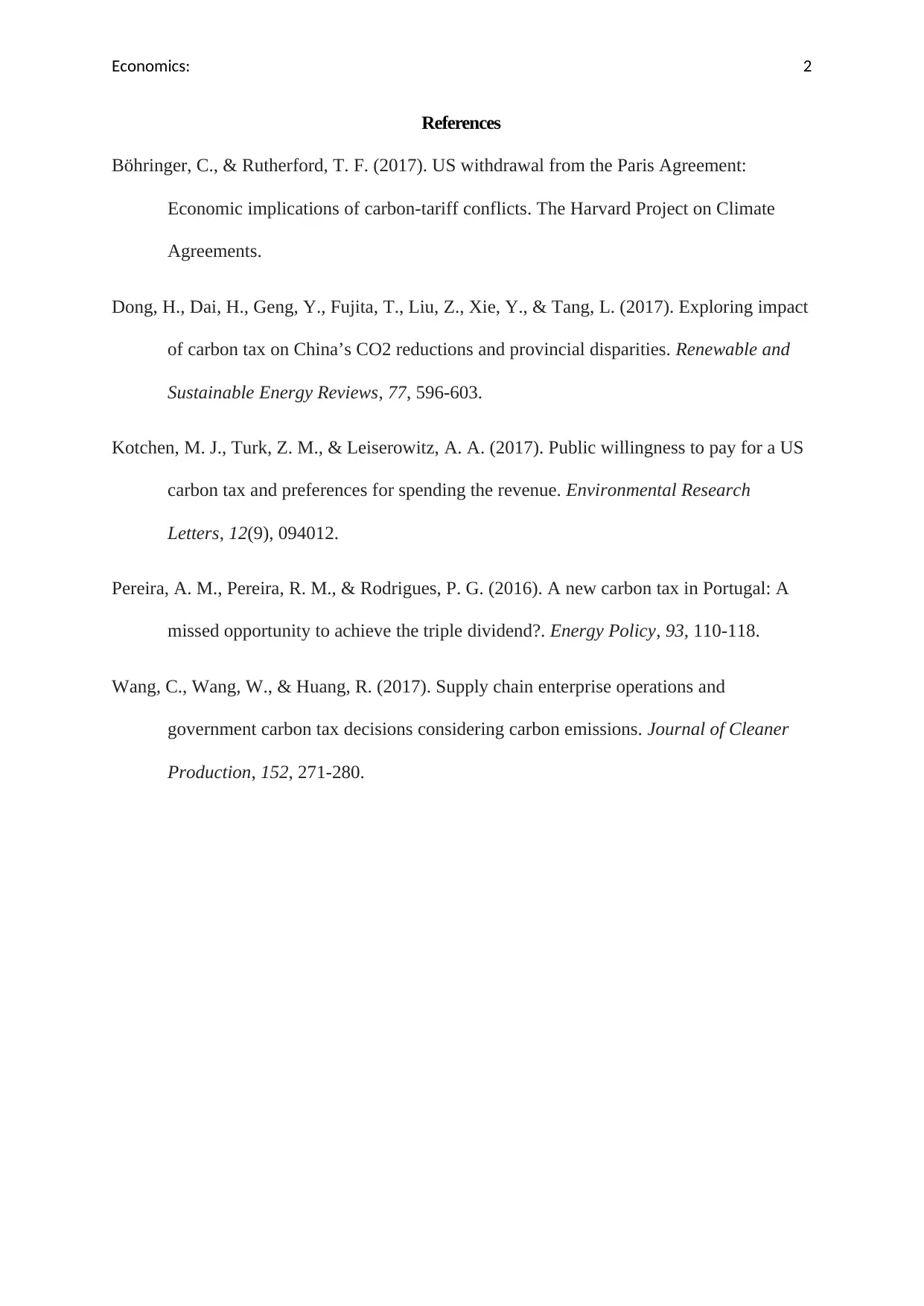Evaluating the Impact of Carbon Tax Implementation on the U.S. Economy
VerifiedAdded on 2022/08/14
|3
|881
|15
Essay
AI Summary
This essay examines the impact of implementing a carbon tax in the United States, focusing on its potential effects on the economy and environment. The carbon tax, a fee imposed on organizations burning fossil fuels, aims to reduce carbon emissions and mitigate climate change. While some argue that it could modestly impact the GDP, this Pigouvian tax addresses negative externalities like greenhouse gas emissions. The tax can incentivize companies to adopt clean energy, increase energy efficiency among consumers, and generate revenue for the government, which can be used to minimize federal deficits or fund additional programs. Implementing a carbon tax may lead to increased electricity and gasoline prices, but subsidies toward renewable energy sources and public transportation can offset these costs. The essay also references the US withdrawal from the Paris climate agreement and emphasizes the importance of pricing carbon pollution to balance economic growth with environmental responsibility. Desklib offers more resources on this topic.
1 out of 3








![[object Object]](/_next/static/media/star-bottom.7253800d.svg)